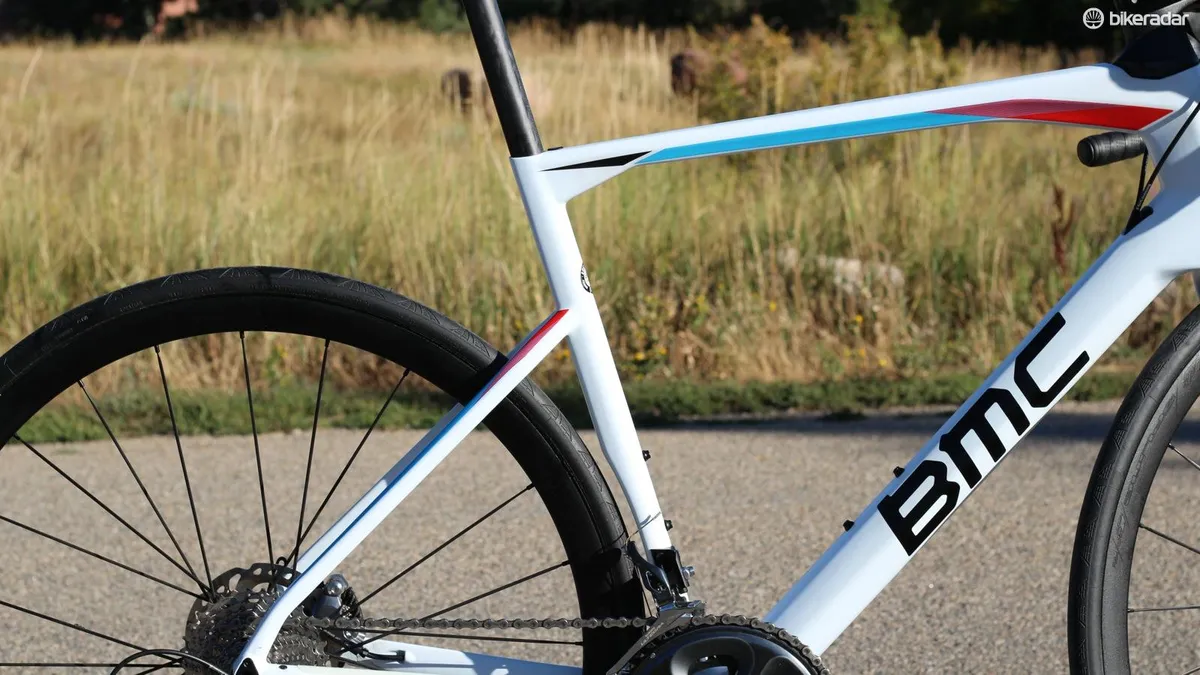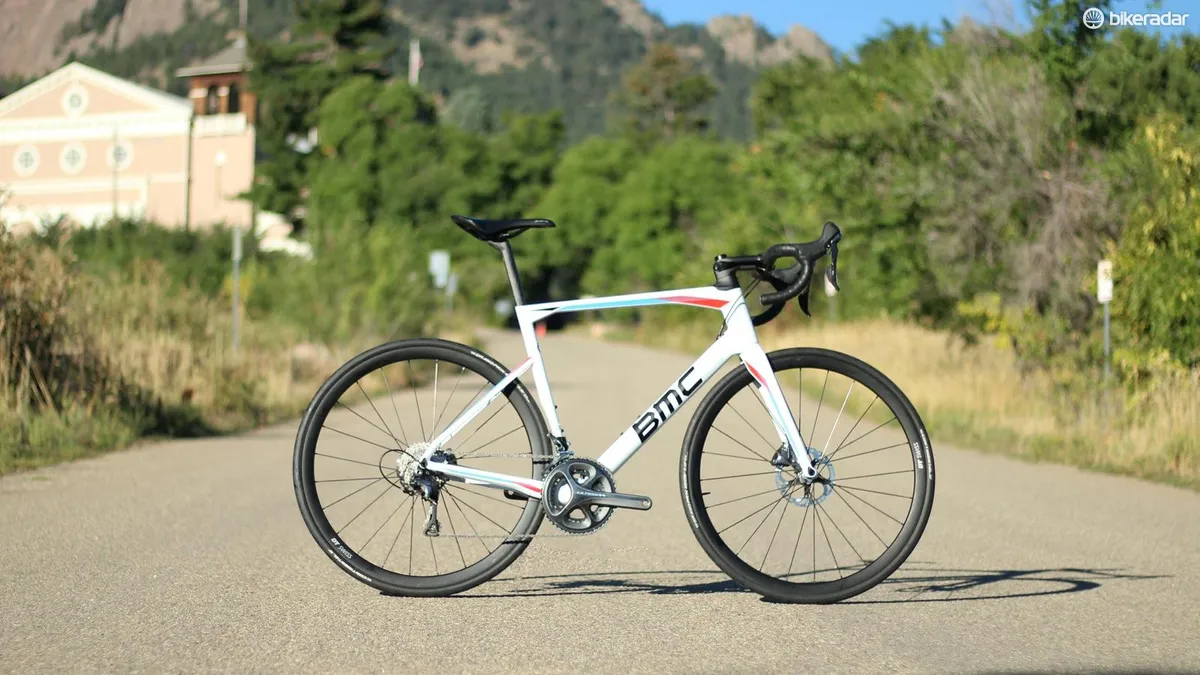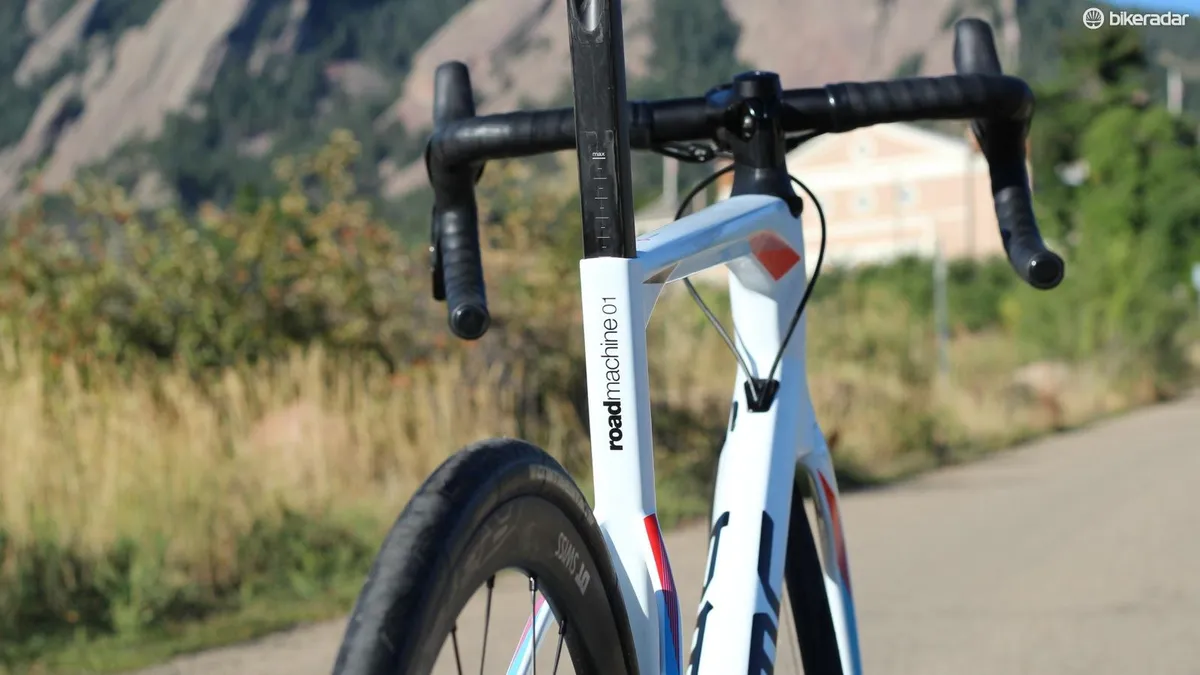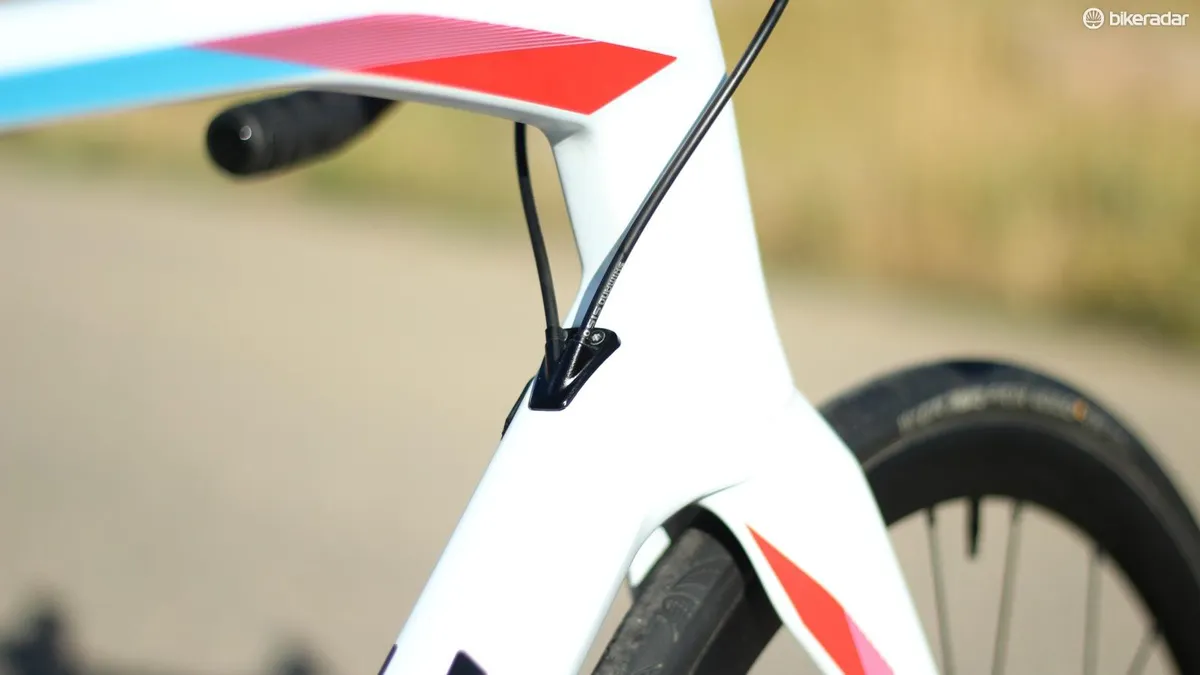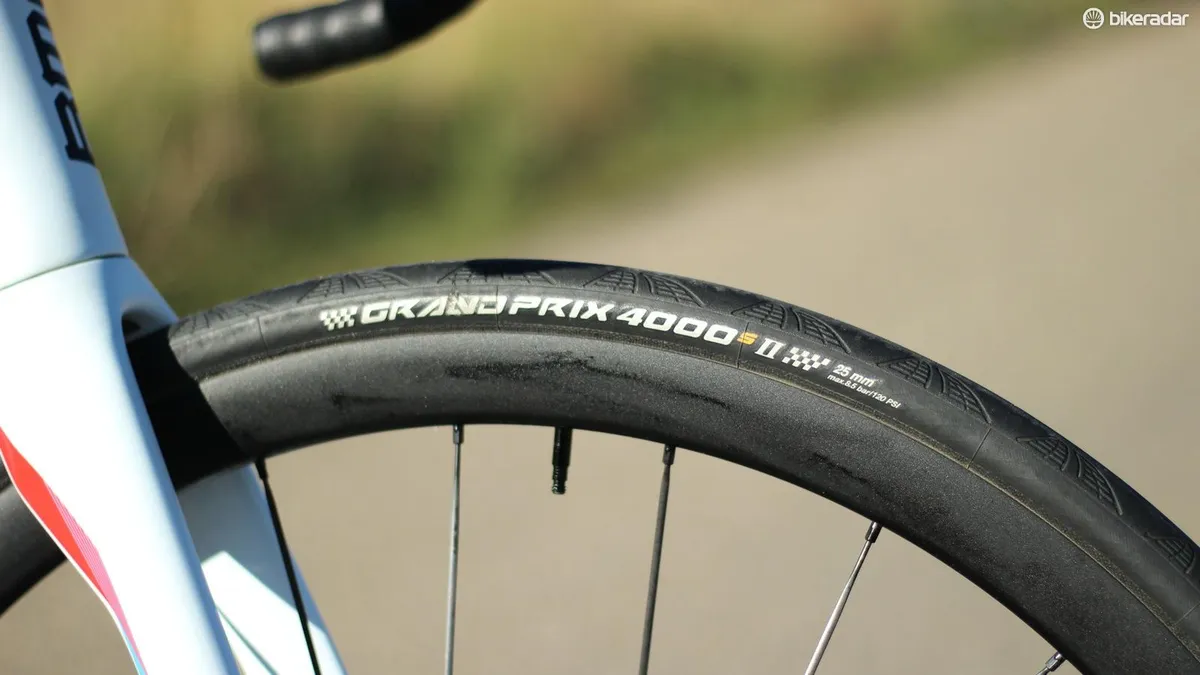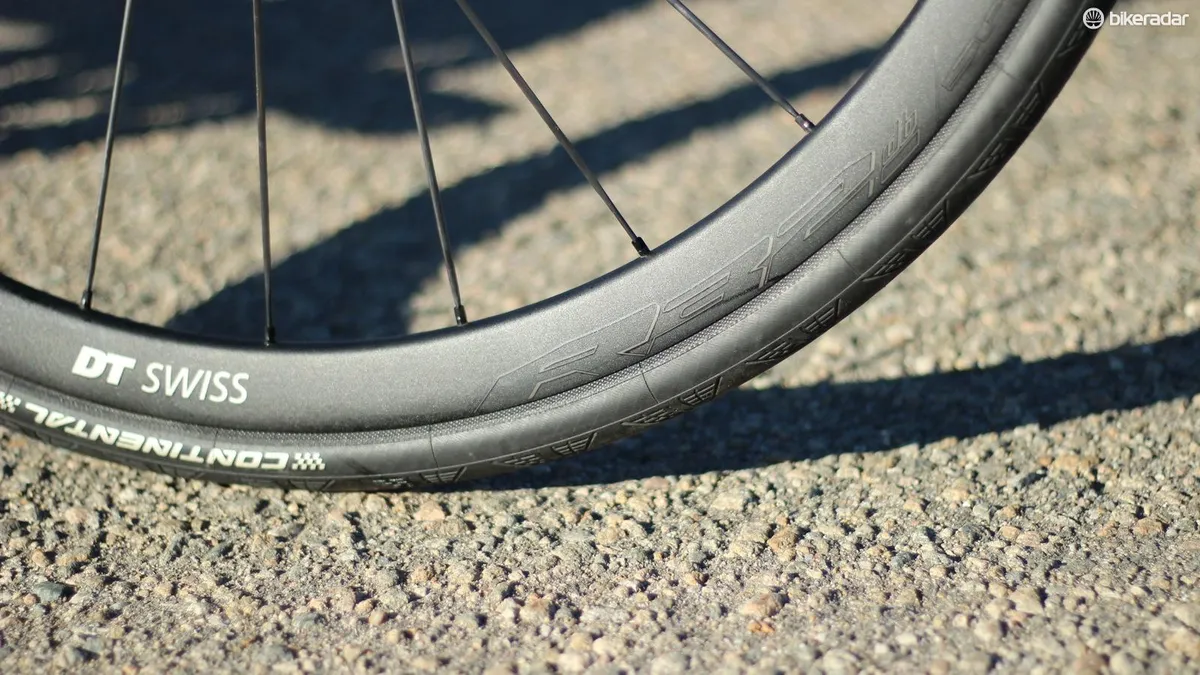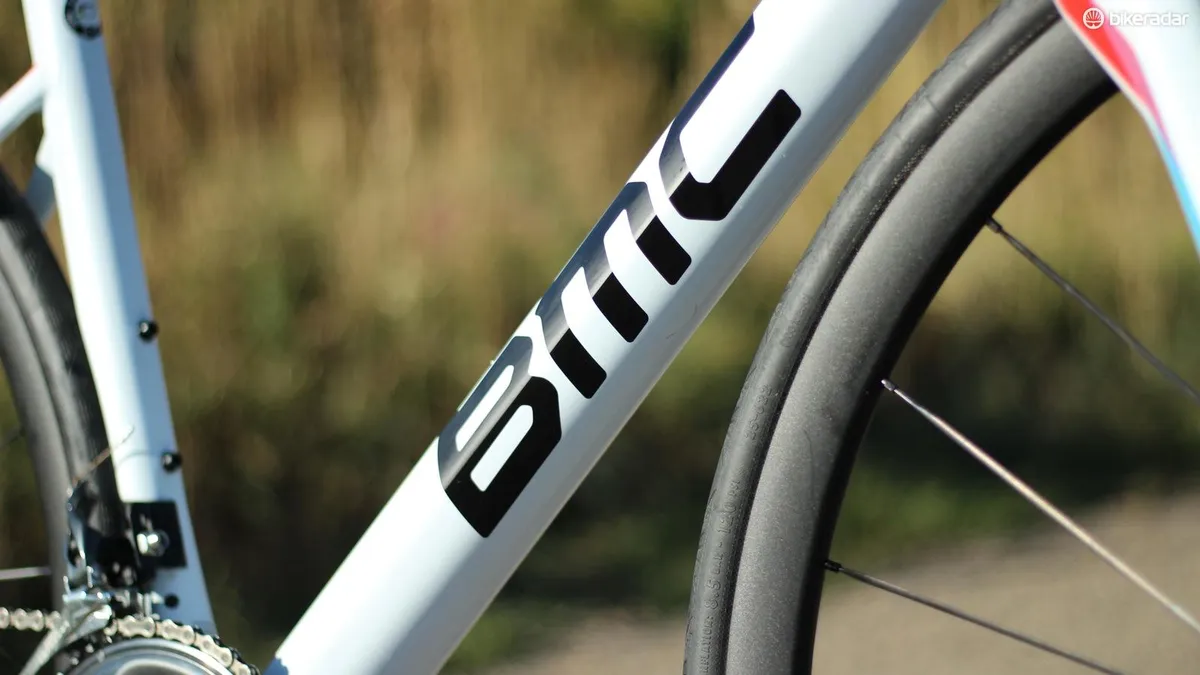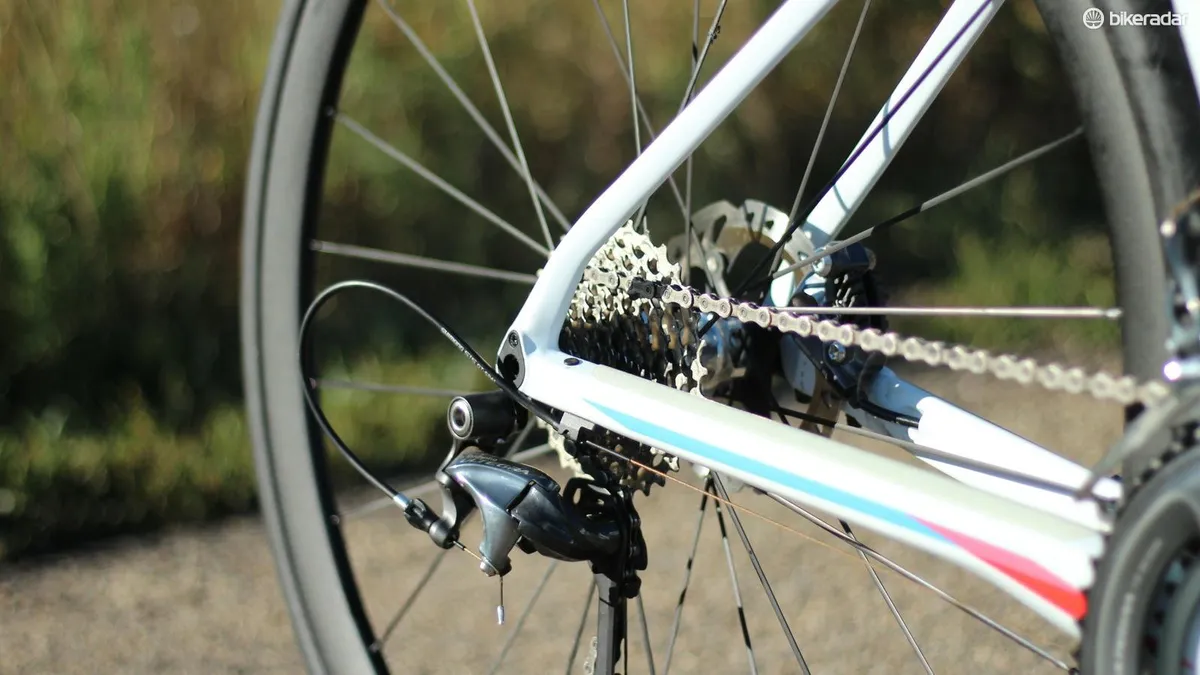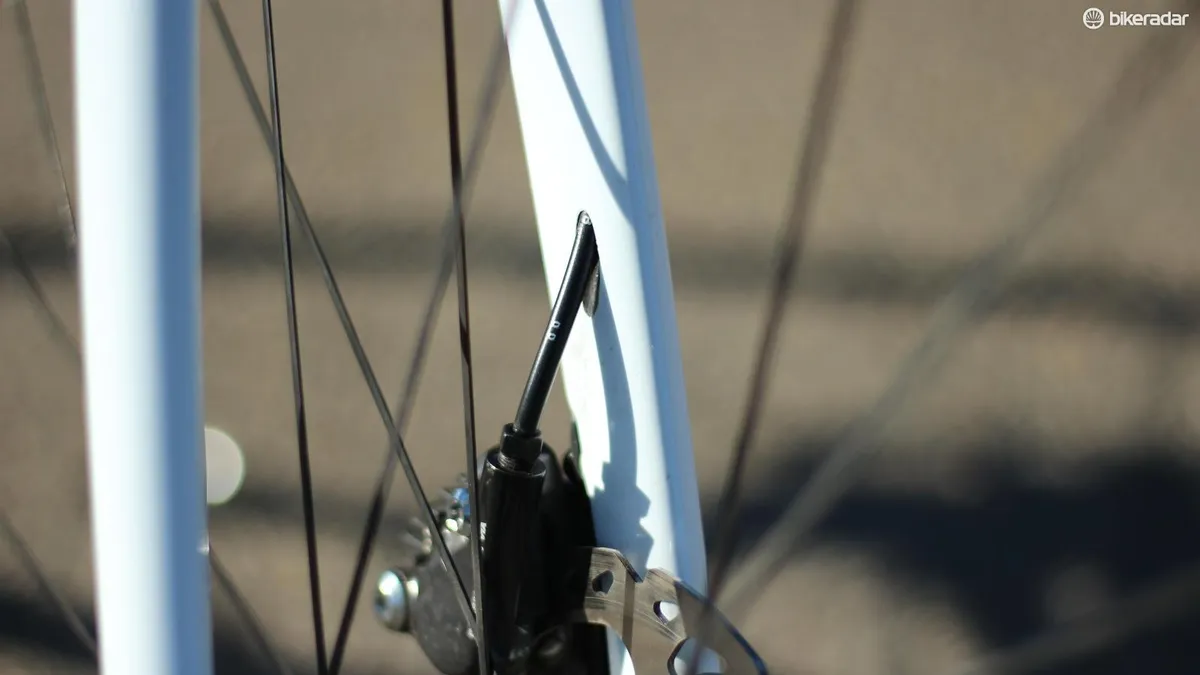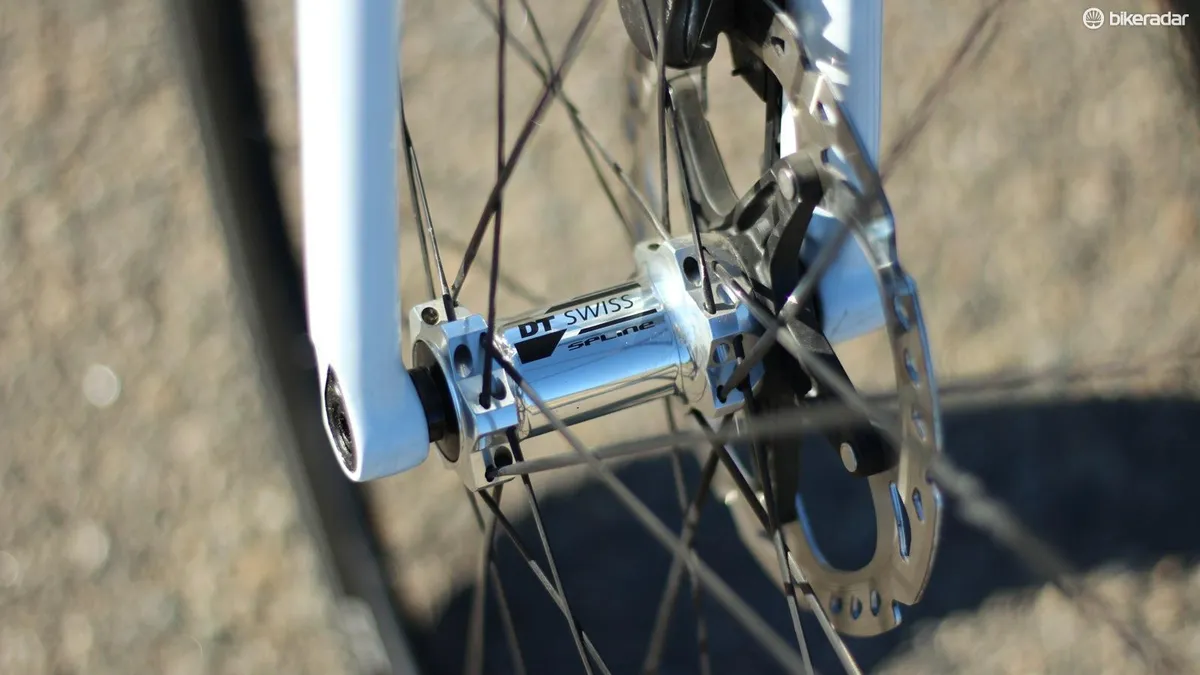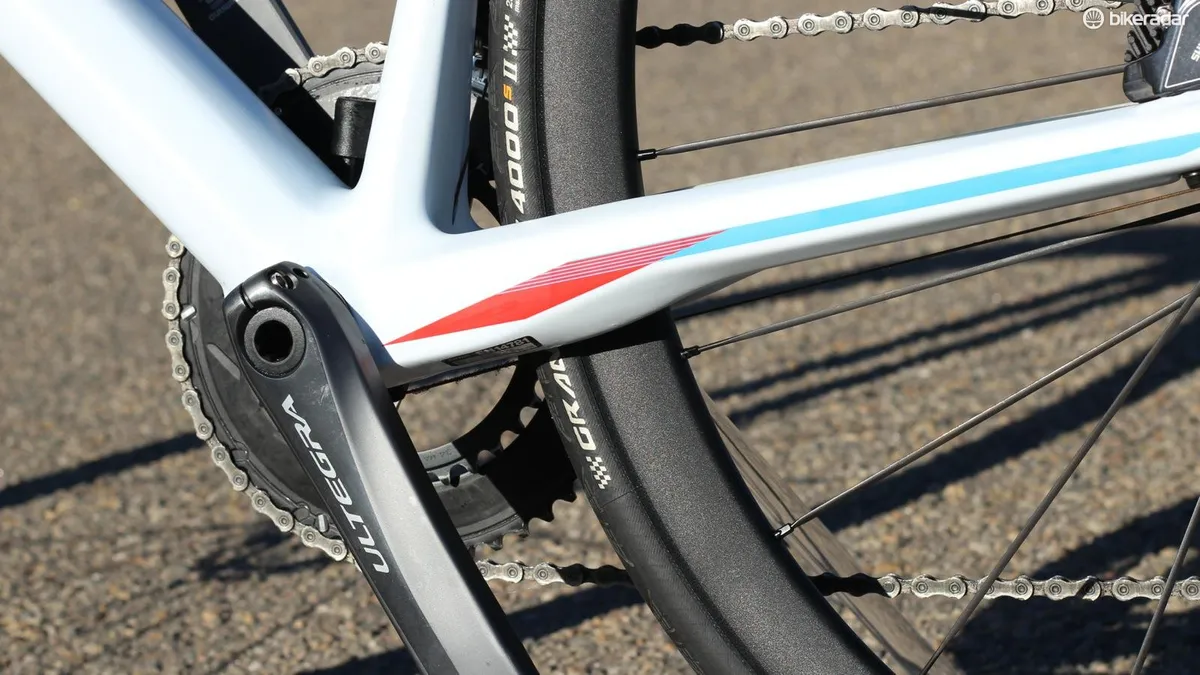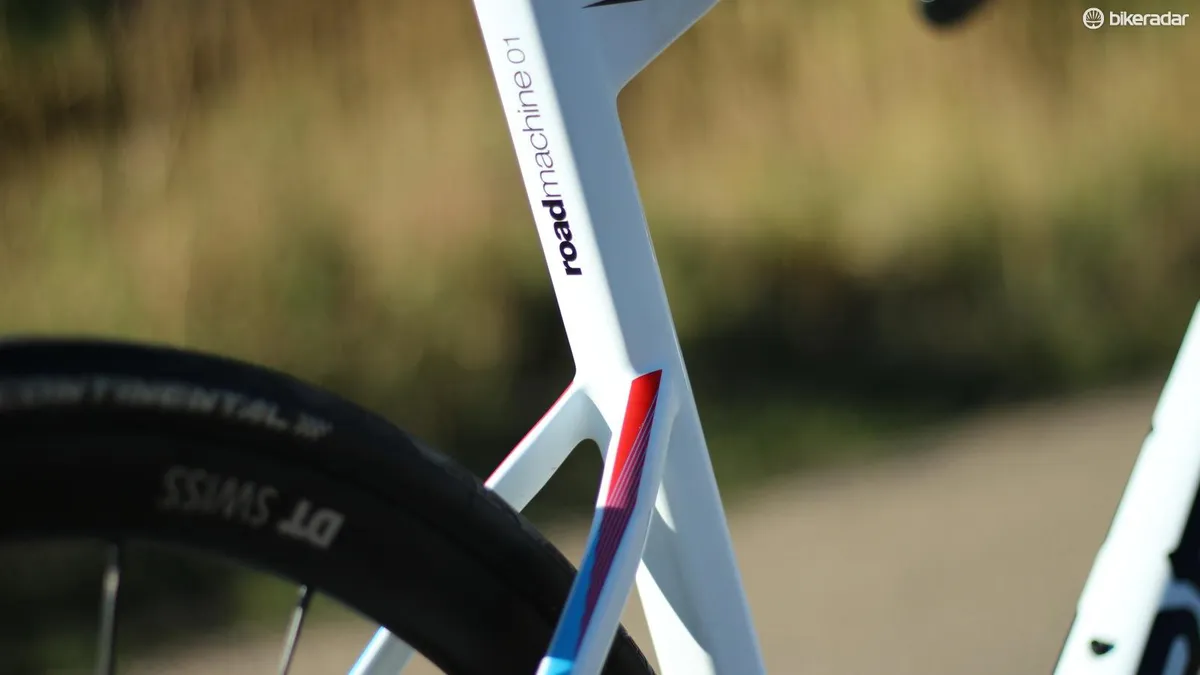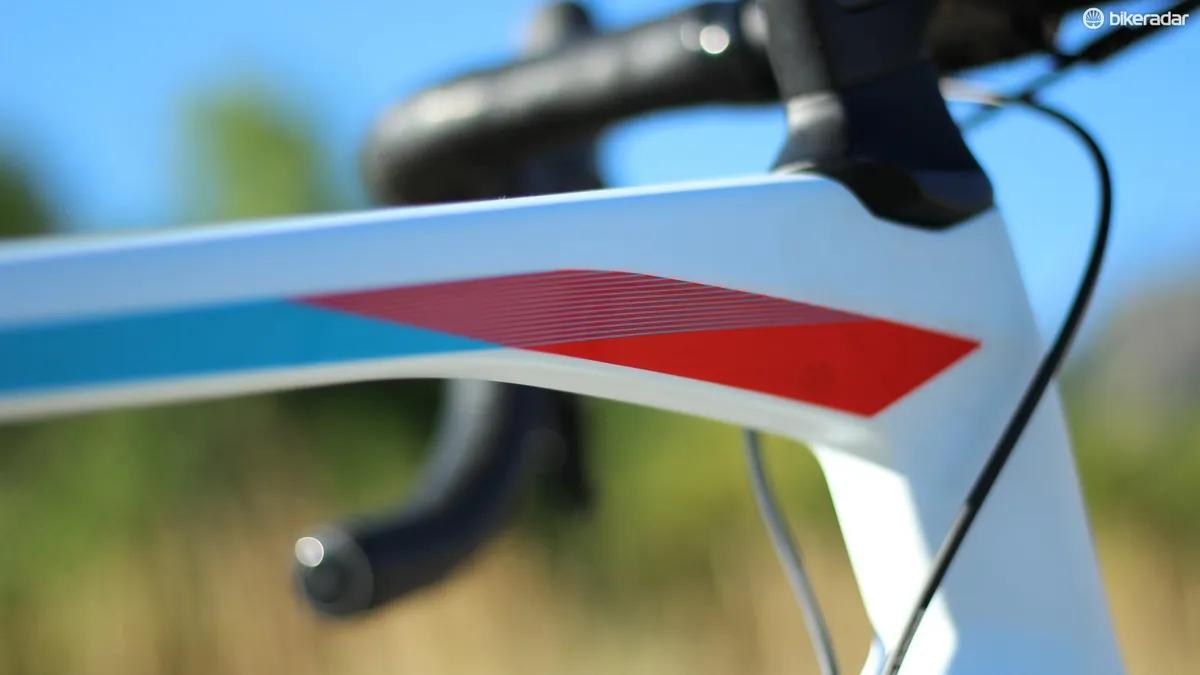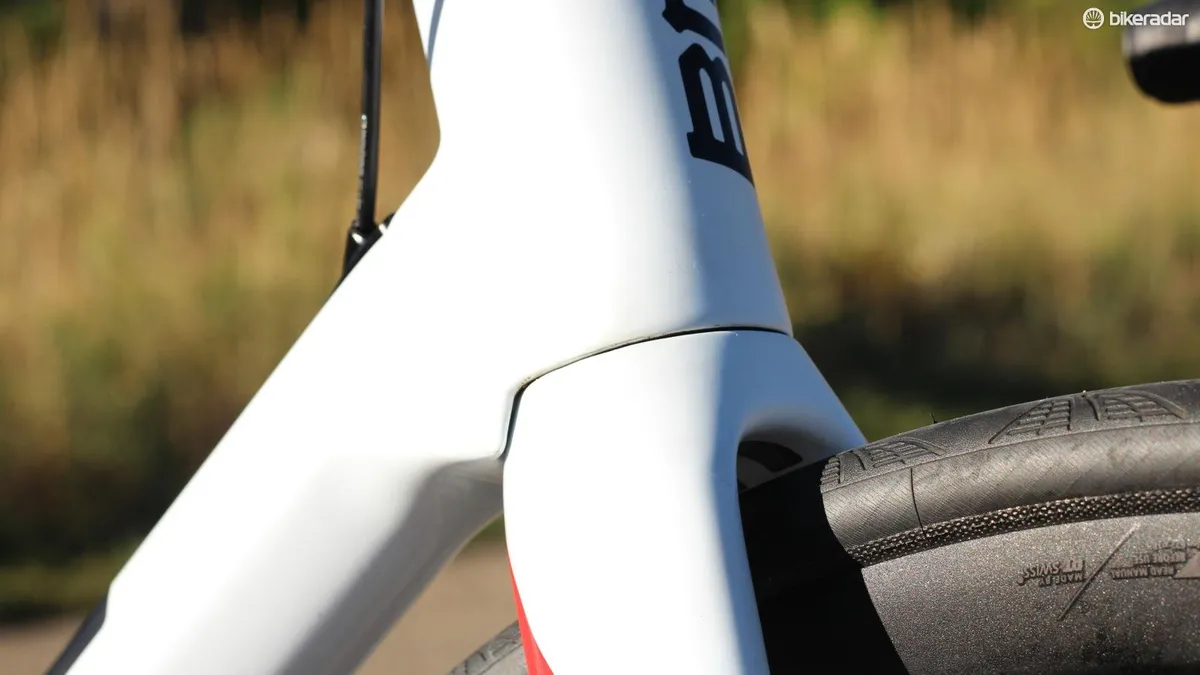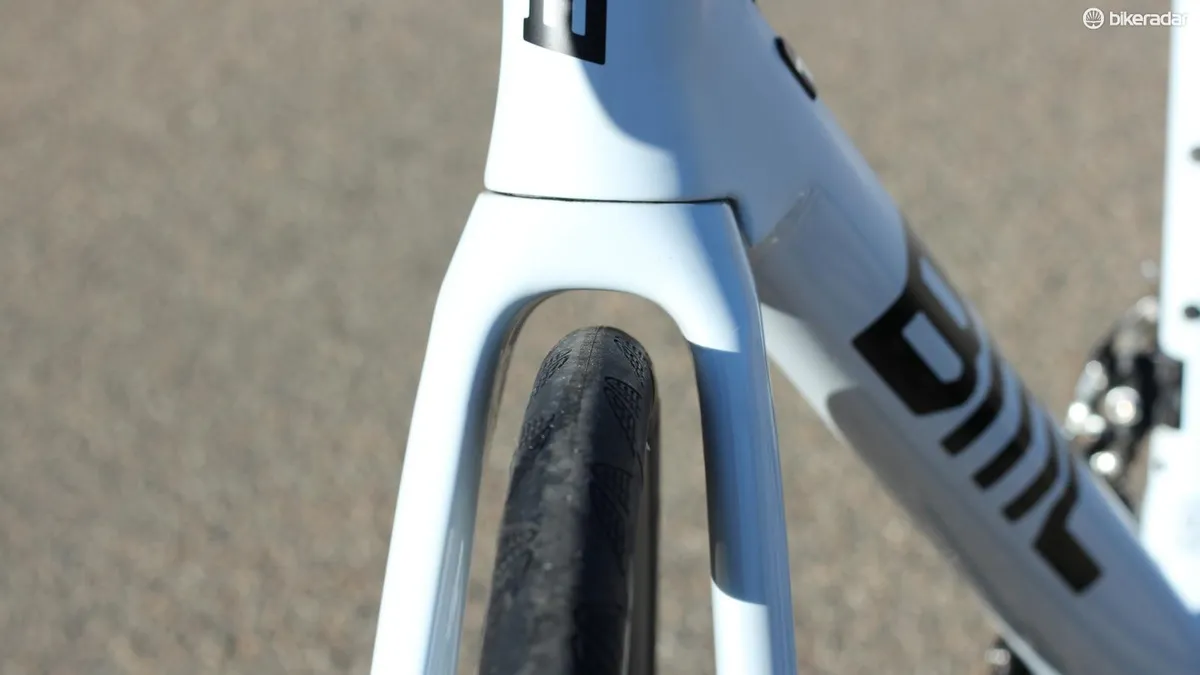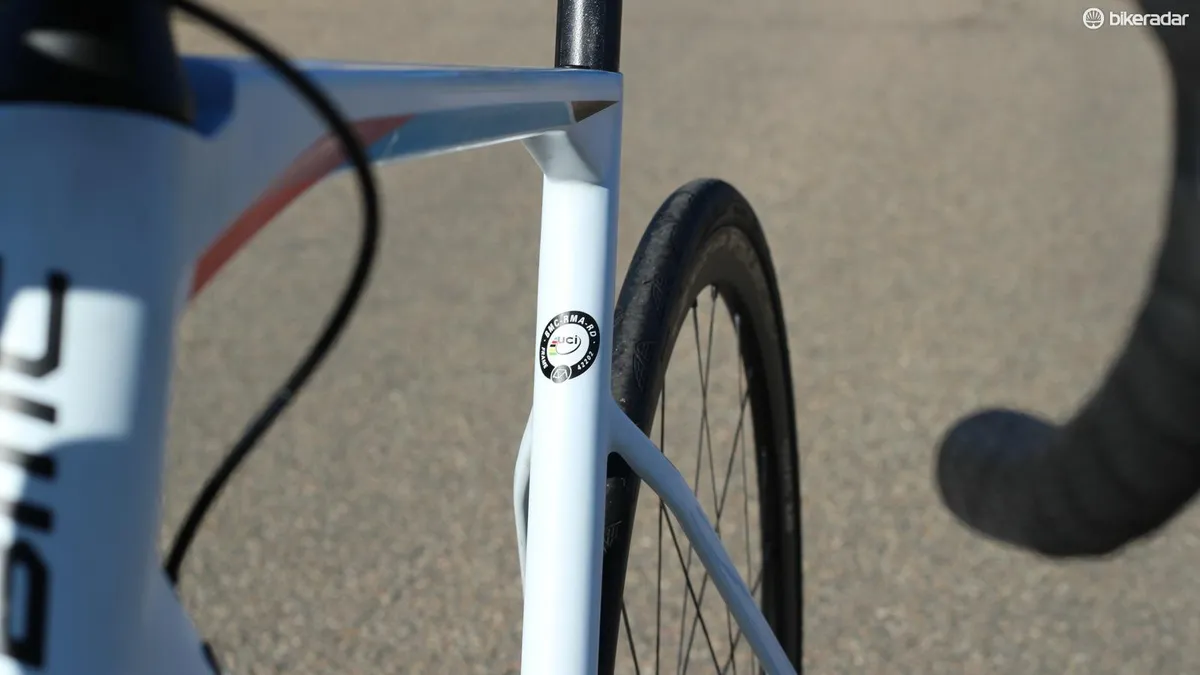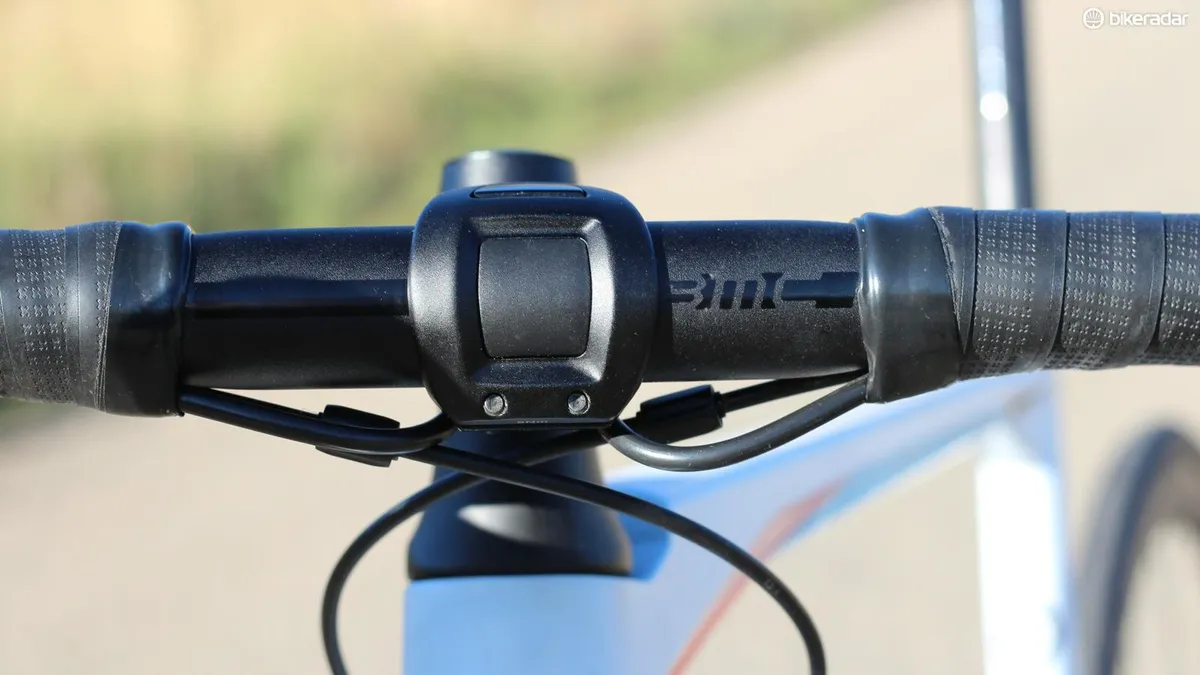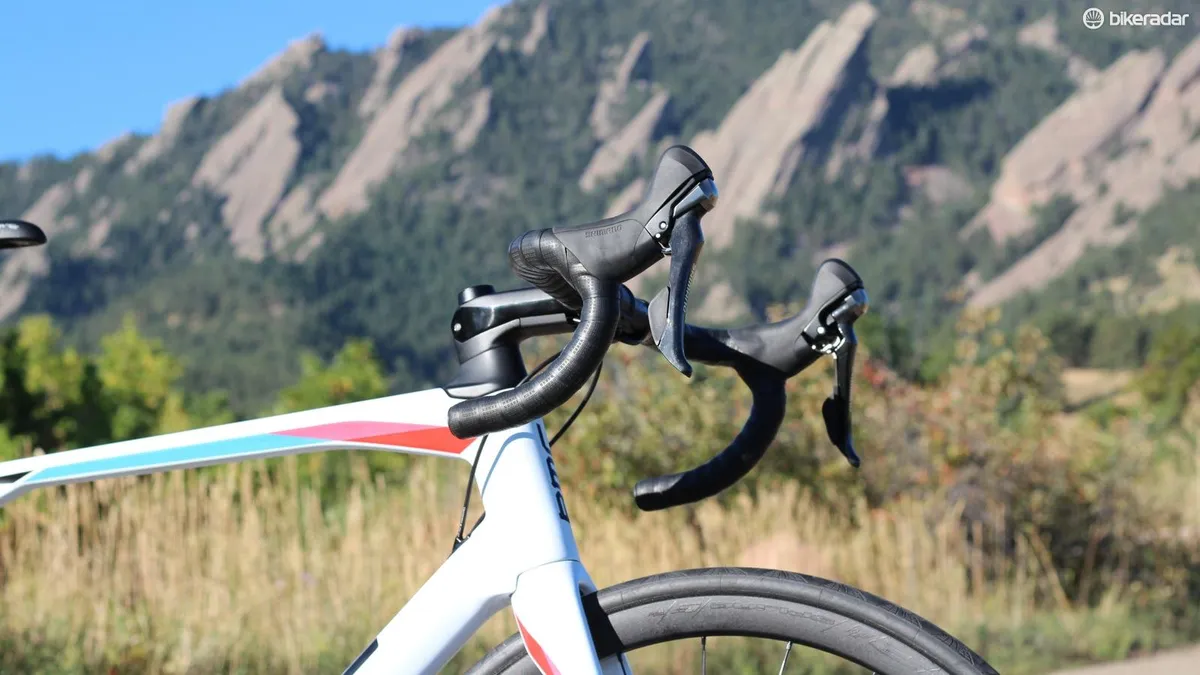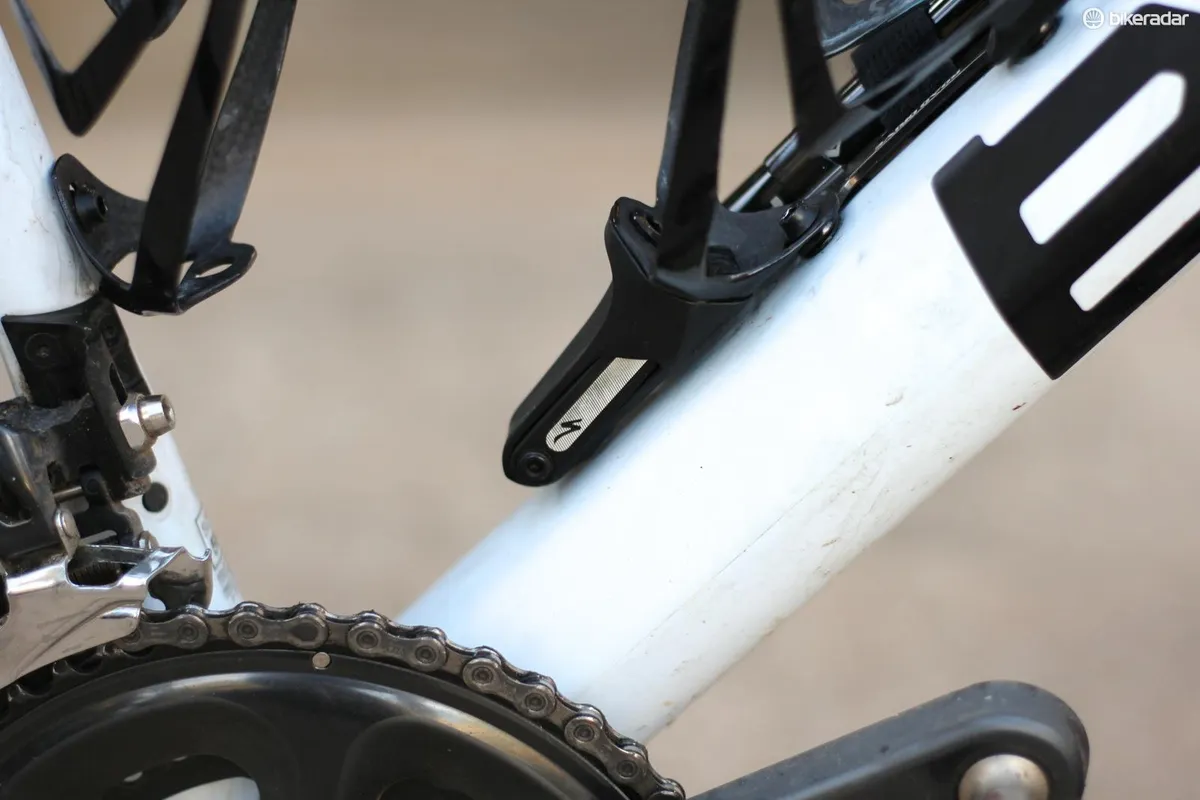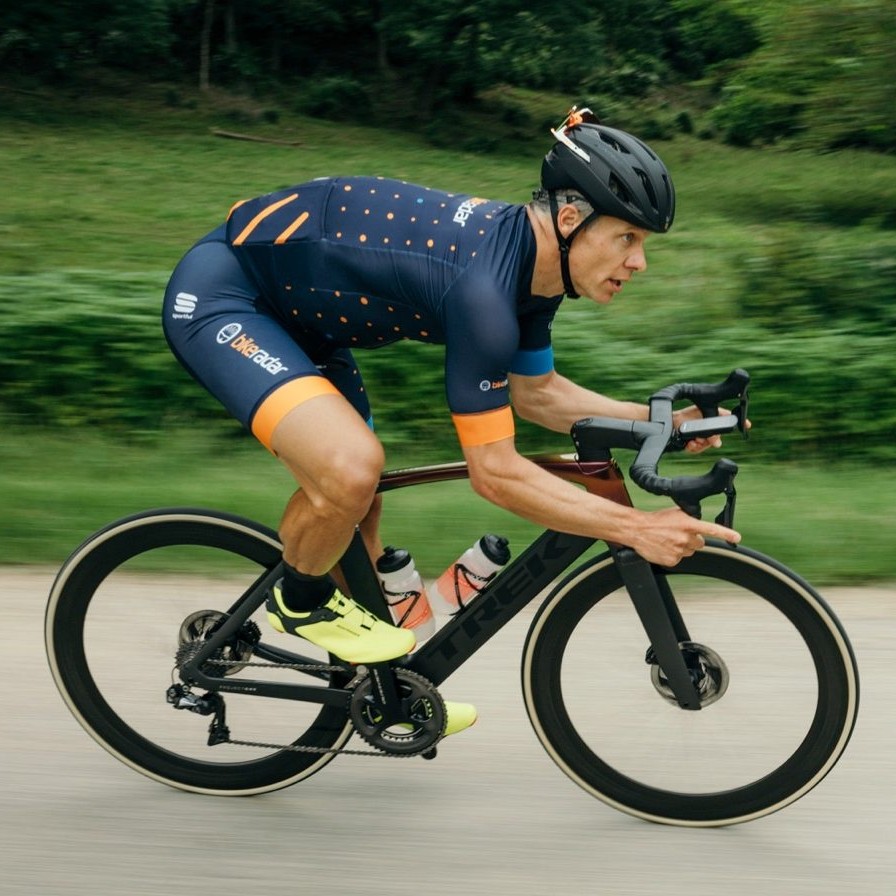BMC's new Roadmachine 01 quickly became my favorite bike for riding in the mountains. Sure, the compact crank paired with the 11-32 cassette make daunting climbs less so, but it's the bike's calm-at-speed geometry, excellent Shimano hydraulic disc brakes and all-around comfort that make the Roadmachine a blast to ride downhill.
- BMC Roadmachine: the future of endurance road bikes?
- BMC Roadmachine 01 Dura-Ace Di2 review
- BMC Teammachine SLR01 Ultegra review
Pretty darn close to perfect
If you find race bikes a little too aggressive but most endurance bikes too tall, then the Roadmachine very well might be your Goldilocks solution.
Like many bike brands, BMC has a full-on race bike, the Teammachine, and an upright endurance model, the Granfondo. With the Roadmachine, BMC split the difference in terms of stiffness and, to some degree, the geometry. It appears BMC is phasing out the Granfondo in favor of the Roadmachine.
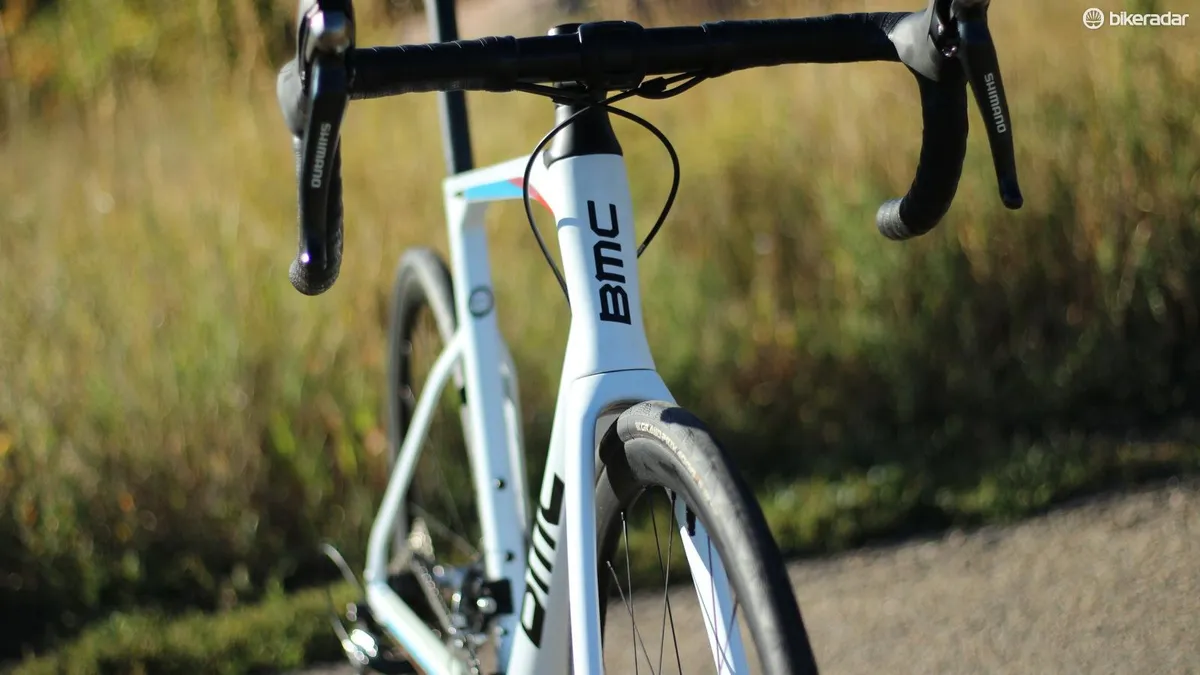
While not billed as an aero bike, I believe the Roadmachine's integrated front end must look good in a wind tunnel, as reducing exposed cabling reduces drag, plain and simple. As always, integrated solutions like this one, where the brake lines are run inside the headset spacers, means added headache for initial set up. But once it's done — and presumably your local shop will handle this for you — it's done, and you're left with a very clean-looking machine.
BMC has two headset cone options for substantially adjusting fit while keeping that clean look. With the short cone, the Roadmachine can get within 1cm of the Teammachine's low stack. (Stack refers to a frame's front end height, measured vertically from the center of the bottom bracket to the top of the head tube.) The taller cone puts the Roadmachine up in the Granfondo range. And with both, you can use matching oval spacers to fine-tune the fit.
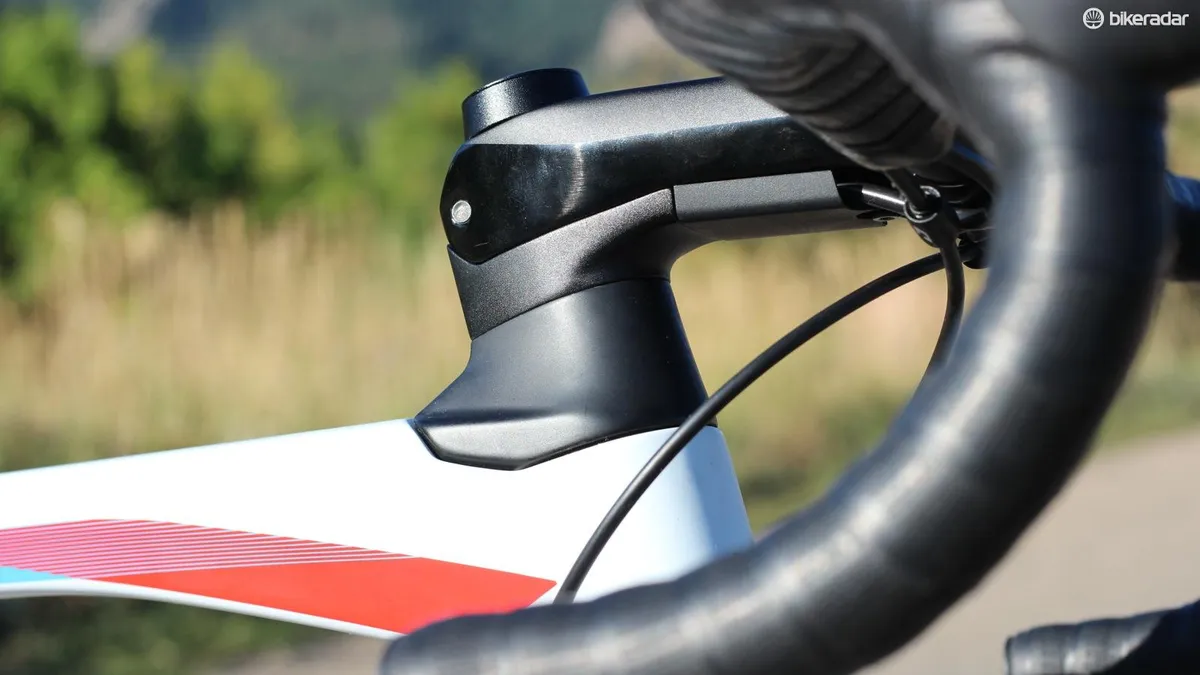
My test bike came with the tall cone, which put me well above my regular handlebar height by a couple of centimeters. Still, I found that the details in stable geometry (71mm BB drop, 72 degree head angle, 1,008mm wheelbase) conspired with the details in comfort (flattened-top handlebar with padded tape, flexing seatpost, Fizik saddle) to put me right at home. Add in the supple and all-around excellent Continental GP 4000SII 25mm tires — which plump up to 28mm on the DT Swiss wheels — and R785/RS805 Shimano hydraulic disc brakes, and I couldn't help but push the limits.
I would argue that there are three exceptional endurance bikes on the market right now: the Specialized Roubaix, the Trek Domane and the BMC Roadmachine
On my first big outing, the low 34-32 gearing emboldened me to point the Roadmachine up to a local ski area. Then, feeling so reassured by the down-in-the-bike position (thanks to the low BB), the bump-absorbing chassis and the grip-tastic Continentals, I had to let loose on the descents, racking up Strava KOMs on 4- and 9-mile stretches of roads that I often ride. Granted, much of the downhill speed can be attributed to the pilot's larger-than-normal rear end and smaller-than-average brain. But some credit has to go to the bike.
The 9.1-mile descent of Sunshine Canyon here in Boulder, Colorado, is a particularly good test for handling. The top third is dirt, and the 2,900ft / 880m drop entails switchbacks, straights, sweepers and even a couple of little kicker climbs for good measure. I went back recently on the Roadmachine, and after a slice of tasty pie in the old mining town atop the mountain, bettered my time on the full length and posted KOMs for the dirt section and the full paved section.
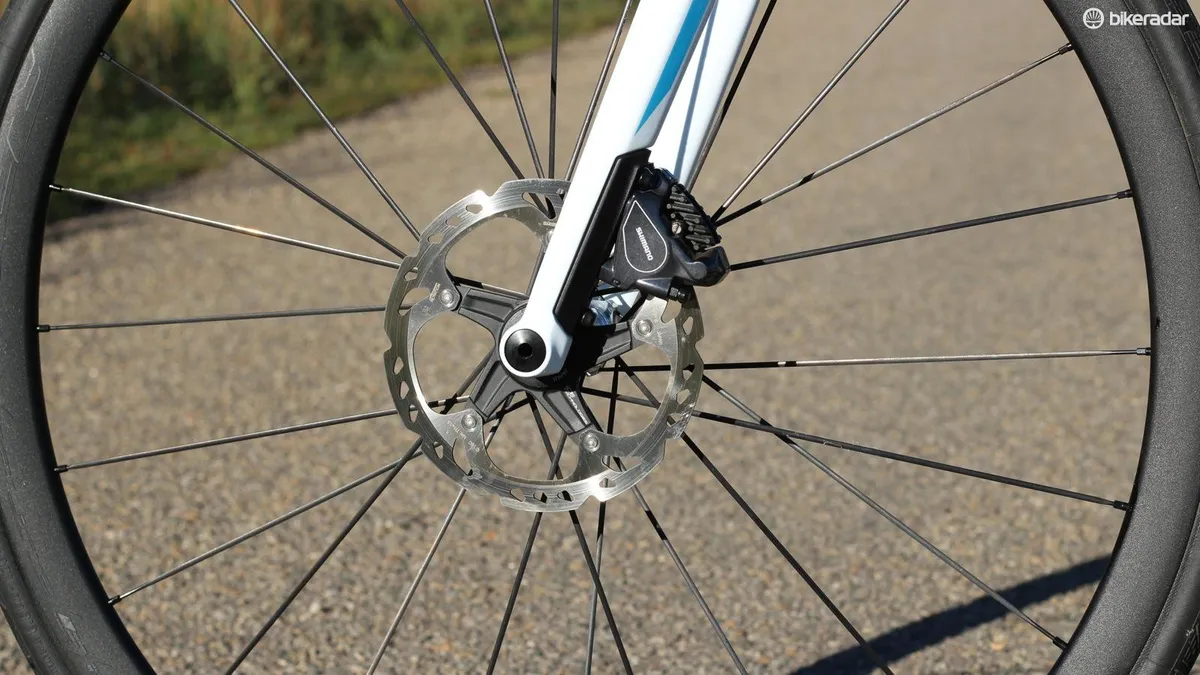
Make no mistake, it's not a race bike. You can get the front end fairly low, which is a traditional part of race geometry, and the trail numbers align between the Roadmachine and the Teammachine race rig, but most of the other numbers identify the Roadmachine as an endurance bike.
The 71mm BB drop that makes for such a stable feel is not criterium friendly. (I discovered the reduction in clearance while pedaling through a fast corner.) And those in the number-pinning set would be quick to note that this model's low gearing, which makes it such a pleasurable climbing companion, puts it out the back for racing. All that said, I felt as comfortable descending fast on this bike than any race bike — perhaps a little more so.
Specialized Roubaix, Trek Domane and the BMC Roadmachine
I would argue that there are three exceptional endurance bikes on the market right now: the Specialized Roubaix with its sprung front end, the Trek Domane with its pivoting frameset, and the BMC Roadmachine.
Both the Roubaix and the Domane push the envelope considerably. Specialized put a coiled-spring, mini-suspension system above the head tube of its new Roubaix. It doesn't feel quite as weird as it sounds, but it is certainly a departure from a normal endurance bike. It also has a heavily flexing seatpost, with plenty of length allotted by the sloping top tube. For all the hype about compliant frames, much of any road bike's comfort can come from the lowly seatpost, as it is free to bow fore and aft. The Domane isn't visually as striking as the Roubaix, but it also has a lot going for it with pivots at both the head tube and the top tube/seatstay/seatmast cluster.
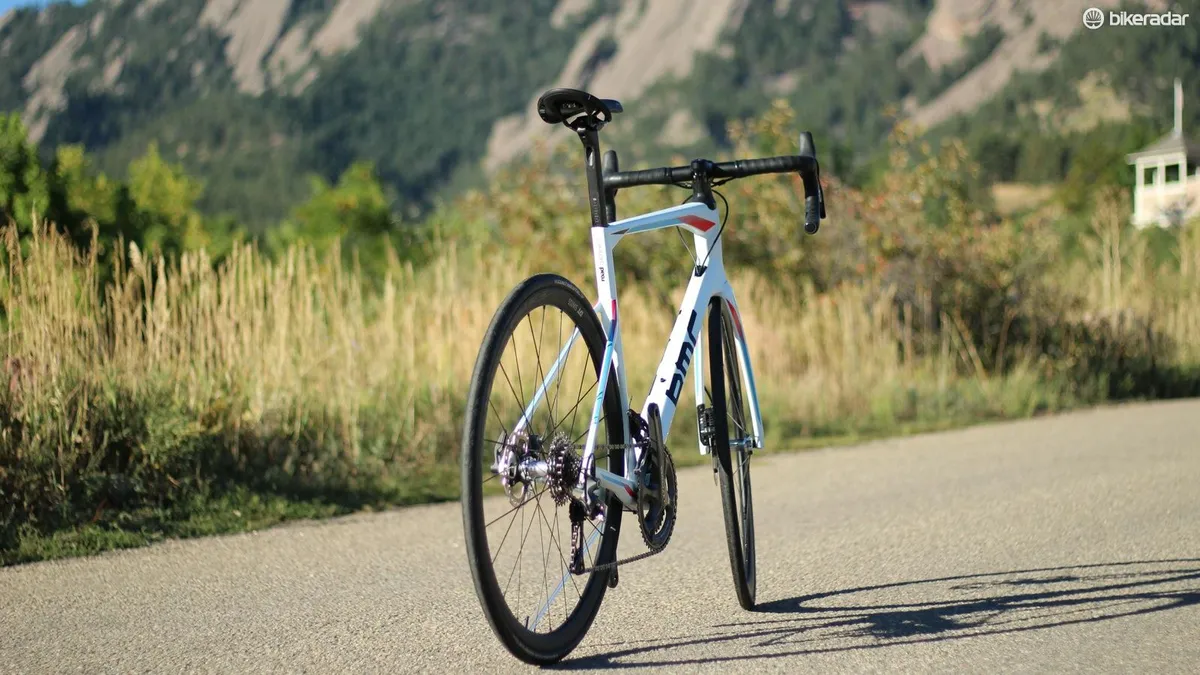
The Roadmachine offers no suspension system, nor any mechanical pivots, yet, it is unflappable. Is it the seatpost? The geometry and tuning of the carbon frame? The luscious, 28mm-effective Continentals? Likely it is a combination of all three.
Nits to pick
The Roadmachine 01 Ultegra is heavy. There is a lot of metal and thus weight on this bike. The wheels add heft, as do the discs and calipers, the giant cassette and the long-cage derailleur required to span it. It feels like it climbs better than its heft would have you think, in part because of the BB/chainstay stiffness; you pedal, and it jumps forward.
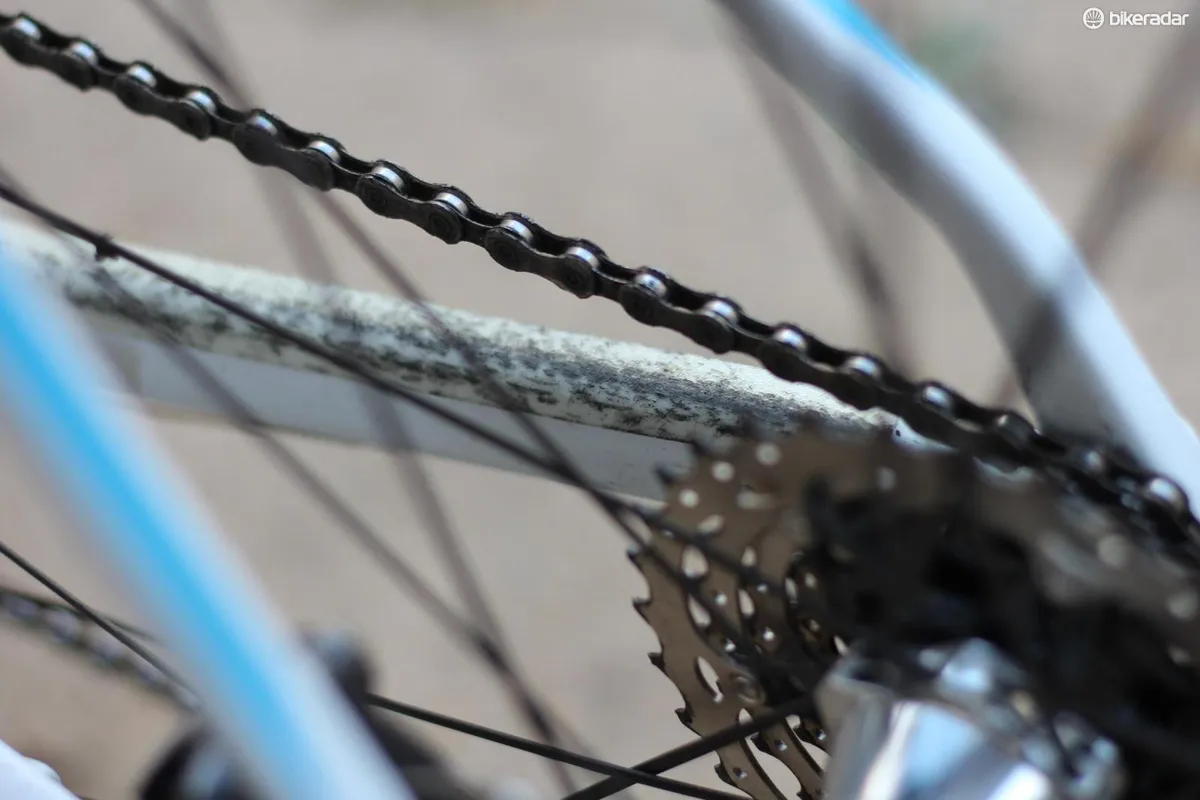
The chainslap on rough roads was annoying. BMC's PR rep argued that if I wasn't rallying the bike on dirt so much the chainslap wouldn't be an issue. And perhaps he has a point, but the bike does encourage getting rowdy. Still, the long chain running on a compact crank resulted in a lot of grease on the chainstay.
For all the beautiful integration up front, the rear derailleur cable is left to swing in the wind — and the mud, rain, dirt, etc. It's not a big deal (note 'nits'), but tucking the rear shift cable into the frame would make for a clear look and cleaner operation. (The Di2 models run the wire through the chainstay.)
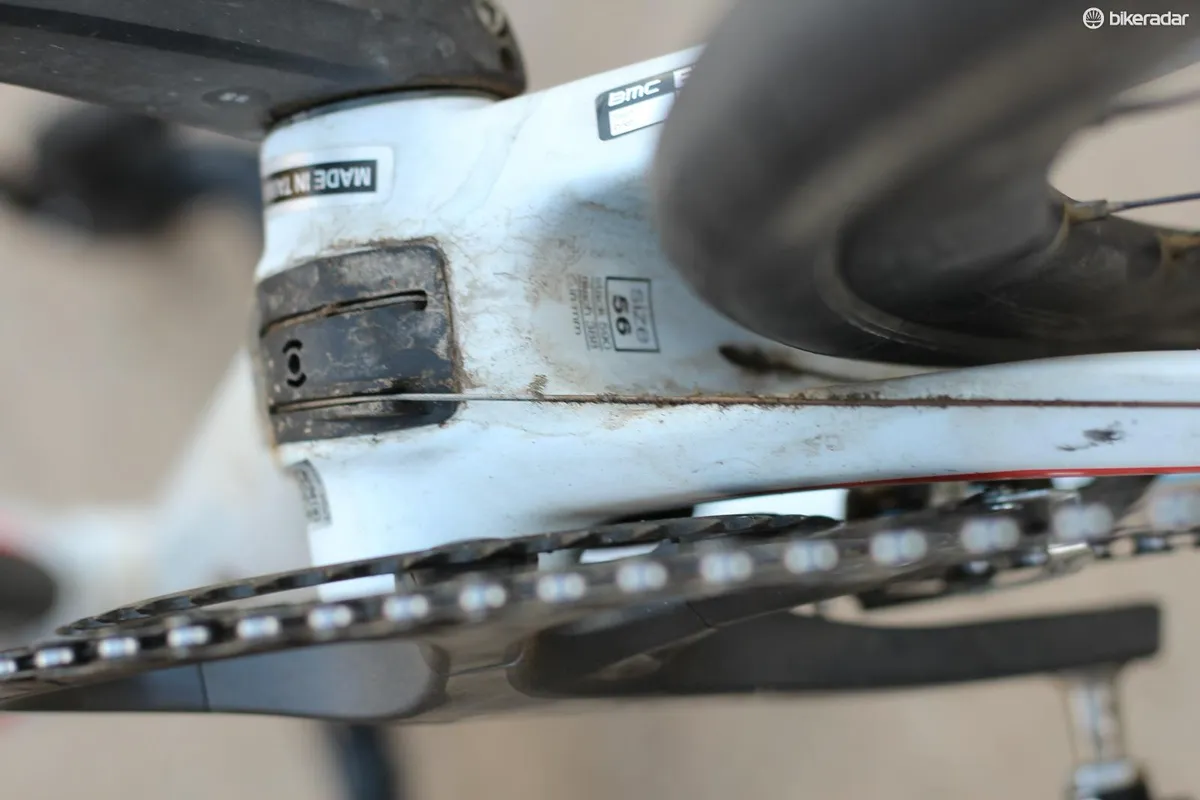
Finally, the beautiful integration comes at a price. If you haven't yet settled on your ideal geometry, this is not the bike to experiment with. Unlike most bikes where you can just yank off the stem and add or subtract stem height at will, this guy requires bleeding hydraulic lines for substantial stack adjustments when you switch between cones, but does allow small headset spacer adjustments without messing with Shimano's mineral oil.
Bottom line: An excellent all-around endurance road bike
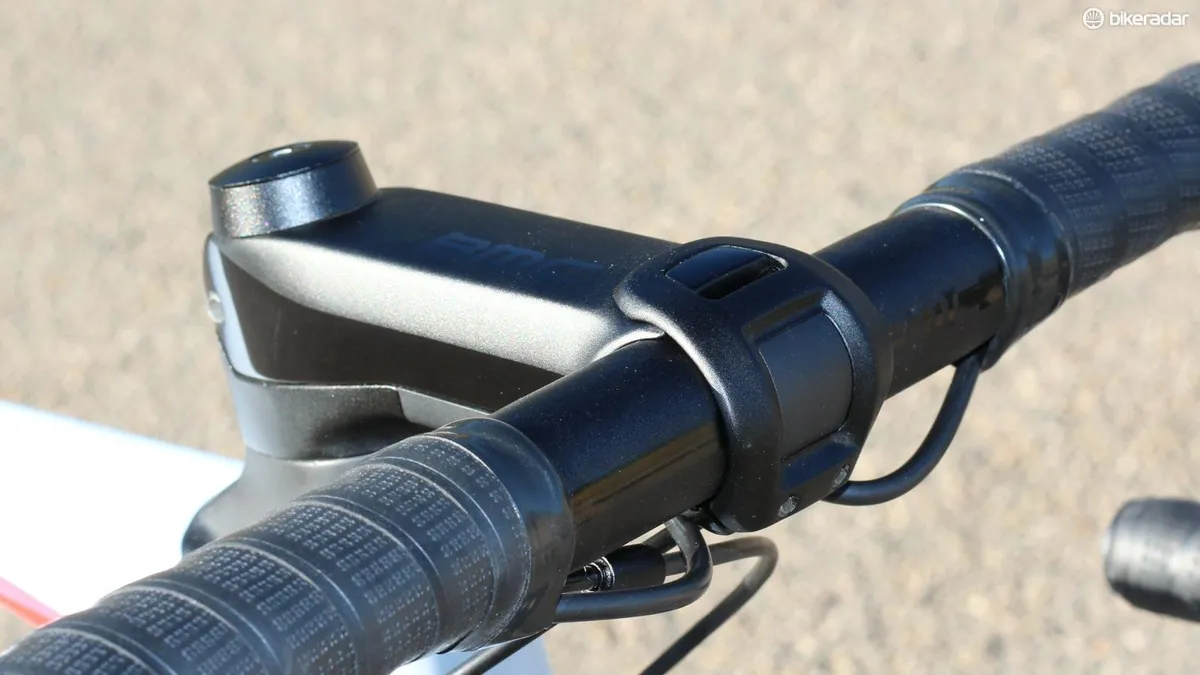
Saddle and handlebar preference are personal, but the BMC spec worked well for me. I appreciate the slightly flattened bar tops that disperse pressure without feeling strange. Visual preference falls into the same category, and — after annoyance with the build process passes — I like how the Roadmachine looks.
By offering a wide range of fits with the two headset cones, BMC is onto something, allowing riders a third option to the standard slammed-and-aggressive race or tall-and-steady endurance offerings available from most companies. BMC is joined in this tweener category by Canyon with its Endurace and Focus with the Paralane.
After geometry and frame composition, The Big Thing that defines a bike is its tires. The DT Swiss wheels are tanks, but generally good wheels with reasonably quick engagement, durable hubs and rims, and seemingly decent aerodynamics. What I really loved was how their 18mm internal width plumped up the 25mm Continentals to 28mm. Michelin Power 25s went to 27.5mm on the rims.
I have said for a while that my ideal bike would be a BMC Teammachine with room for 30mm tires. This is pretty darn close. I was sorry to have to pack it up and return it.
